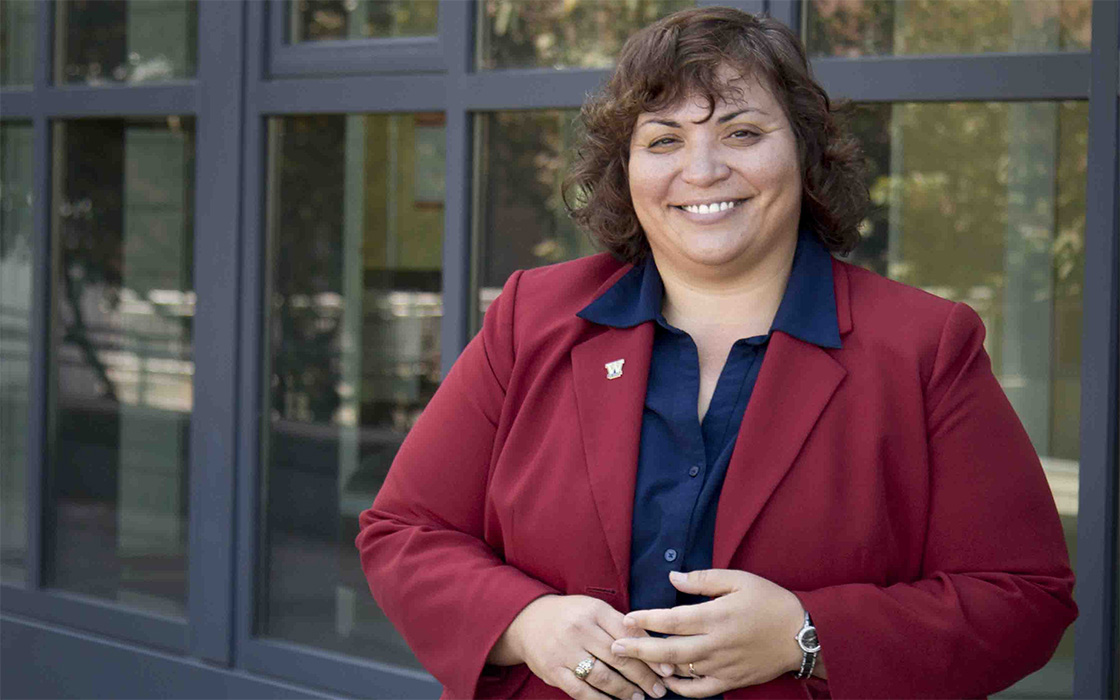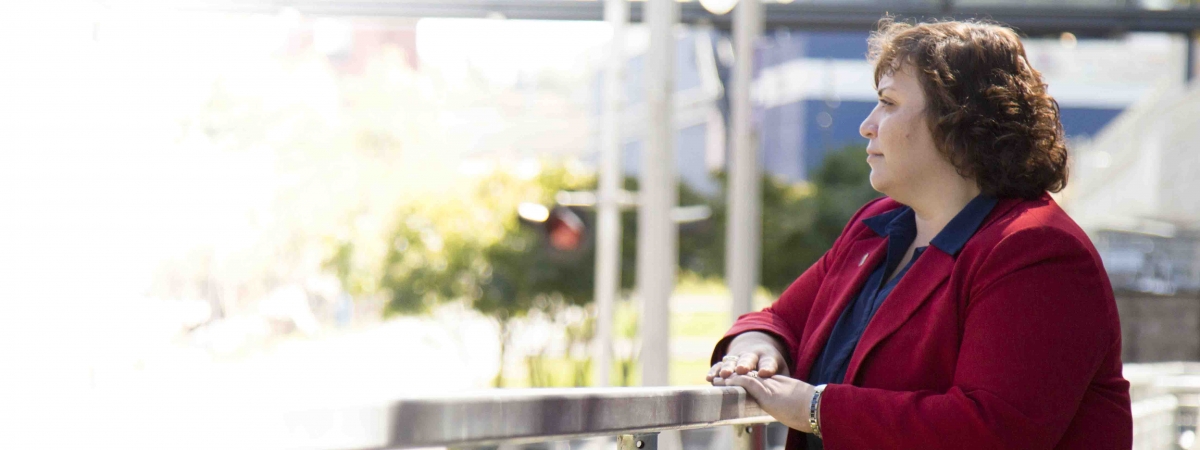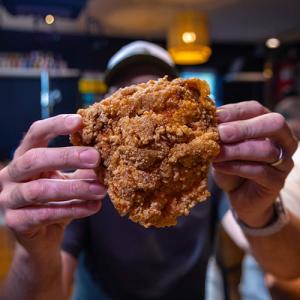
“I'm Here And Life Is Good”
On the fifteenth anniversary of the 9/11 attacks, UW Tacoma's Susan Wagshul-Golden reflects on her experience at Ground Zero.
“It’s not so much what happened 15 years ago, it’s what have you done with those 15 years,” says Susan Wagshul-Golden when asked about the terrorist attacks on September 11, 2001. UW Tacoma’s Director of Campus Safety and Security has a personal connection to the tragedy.
A then 33-year-old Wagshul-Golden served as a campus lieutenant for the Borough of Manhattan Community College [BMCC] Public Safety Department. The college is only a few blocks from Ground Zero. At the time of the attacks Wagshul-Golden had been in her command for only 17 days.
She was on the phone with a colleague when the first plane hit the north tower of the World Trade Center. “It felt like the whole room moved,” said Wagshul-Golden. "I went outside, looked up and saw one of the towers and there’s this big hole.”
BMCC has two locations in Lower Manhattan — the main campus at 199 Chambers Street and Fiterman Hall at 30 West Broadway. The latter is two blocks from the World Trade Center. Wagshul-Golden made her way to the residence hall immediately after the first plane struck and ordered an evacuation of the 15-story building. “I’m holding the door telling people to clear out because the door wouldn’t stay open,” she said. “I’m physically in the lobby using my body as a doorstop.”
At the time more than 1,200 students were attending classes in Fiterman Hall. The second plane hit the south tower as Wagshul-Golden and her team were clearing the building. A few students had been struck by debris but suffered non-life threatening injuries. Everyone else made it out safely.

Amidst the unfolding chaos Wagshul-Golden had the presence of mind to call her mother-in-law who also lived in New York City. “I wanted her to relay a message to my mother in Pennsylvania and tell her I was okay,” said Wagshul-Golden. “As we talked I heard over the radio the order to evacuate because the tower was coming down.”
Wagshul-Golden and a group of responders started running for shelter as debris and the approaching dust cloud flooded the building. “Some folks said ‘Let’s go to the basement,’ but I said ‘No, that’s where we’re going to die.’” They ended up taking refuge in a loading dock. “I went into life safety mode,” said Wagshul-Golden. “I took my hand and cupped it to make a natural air pocket and was breathing out of that.”
Injured and covered in soot, Wagshul-Golden made her way back to the main part of campus. She was helping direct people away from Ground Zero when the north tower fell. “Just a big ball of smoke and glass and ash, picture that coming at you,” she said. Wagshul-Golden was running — for the third time that morning — when she noticed a woman with a small child. “The woman had kind of just stopped. I pulled her as hard as I could and attached her to me,” she said. All three survived.
Working Together
A native New Yorker, Susan Wagshul-Golden grew up in Brooklyn, the child of a Jewish father and a Puerto Rican mother. “My mom used to tell me it doesn’t matter what group you’re in you got to learn how to play with everybody,” said Wagshul-Golden.
This philosophy proved necessary in the days and weeks following the events of September 11, 2001. Wagshul-Golden coordinated with multiple agencies including the FBI, Army, and New York City Fire Department. “I was working with 3,500 different disaster emergency responders,” she said. “Part of our responsibilities included searching for survivors and securing the perimeter.”
Wagshul-Golden, like many other responders, worked 12 hour shifts with intermittent meals and little sleep. She spent most of the first 13 days after the attacks helping at Ground Zero in one capacity or another. The work was hard but equally challenging was the strain it put on her family. “It was difficult,” she said. “I was responsible for all those officers in my command and I had to make sure they were okay.”
A Sandwich and a Snapple
Her accent only comes through on certain words like “coffee” or “water.” Wagshul-Golden came to UW Tacoma in 2007. In the intervening years she’s lost most of that distinctive New York brogue. “When I first moved out here everybody would ask me to imitate Joey from Friends,” she said.
Wagshul-Golden has a warm personality and is never far from a smile. Her style is unique, especially considering her role in helping keep campus safe. “The joke is that Susan will give you a sandwich and a Snapple,” she said. “The idea is to talk, to have a conversation before a disaster happens.”
Wagshul-Golden puts a premium on building relationships. She coordinates with other agencies and started the Pierce County Higher Education Emergency Planning Group. This coalition of local universities and community colleges meets every other month to discuss best practices. Wagshul-Golden also serves as the adviser for a new student organization that will eventually be used to assist in crowd control or provide basic first aid. “I want to have 4,000 people that are prepared and ready to go because that’s 4,000 responders who can help each other in a major disaster or crisis,” she said.
An Oath
This Sunday marks the fifteenth anniversary of the 9/11 attacks. Around this time last year Wagshul-Golden got a phone call telling her a friend had passed away from cancer caused by exposure to toxins at Ground Zero. “Every year I get a call that someone else is going,” she said.
A few years ago Wagshul-Golden took her then-fiancée (now husband) to New York and to the World Trade Center site. “As we started getting close to Ground Zero my hands started sweating and I swear I could smell it, the same smell from that day,” she said. “You still feel it, your body remembers. I just acknowledge it and remind myself that I’m here and that life is good.”
Coming back to the beginning: what has Susan Wagshul-Golden done with the past 15 years? Among other things she’s raised a family — two sons — and she’s helped a growing university by providing a steady hand, one that is committed to creating a safe space for everyone. “When I started [at BMCC] I had to take an oath of service, that oath never goes away.”



